Greater Binghamton Eye Surgery Center
About Us
The Greater Binghamton Eye Surgery Center is an ambulatory surgical facility established to provide surgical services in a safe, efficient, cost-effective and user-friendly environment. Procedures performed are limited to those identified in the Scope of Care, as approved by the Governing Body. Surgical services are limited to those which can be safely and effectively provided on an outpatient basis and are typically elective and non-emergent in nature. Any time a procedure is done in the surgery center, an RN and an MD will be present.
Staffing At The Greater Binghamton Eye Surgery Center:
- Operating Surgeon
- Anesthesia Providers
- RN Clinical Director
- Circulating R.N.’s
- Operating Room Technicians
- Preop and PACU R.N.’s and LPN’s
We will employ sufficient numbers of professional and support staff to ensure efficient, quality patient care, which might include R.N.’s, LPN’s, nursing assistants and technicians. This will be directed by a registered nurse.
We will develop and ensure fiscal soundness through proper budgeting and performance analysis.
We Center may utilize professional consultants, as needed, to ensure legal and regulatory compliance.
Our Patient Flow Process
The patient and responsible party will enter the waiting room, be greeted by a receptionist, and checked in for the surgical encounter. Every effort will be made to complete all necessary paperwork prior to admission. Any remaining documentation will be completed at this time. Verification of receipt of physician ownership disclosure statement, patient rights and responsibilities and facility policy regarding advanced directives will be discussed at this time. Patient ID band will be placed on patient’s wrist.
The patient will be escorted to the assigned pre-op area. Here, they may remove some of their “street clothes” and don appropriate surgical attire, depending on the nature of the planned procedure. All patients entering the restricted area will don a head cover. Patient belongings will be secured and remain secure throughout the encounter and returned to the patient prior to discharge.
The patient is offered a blanket and made comfortable in the pre-op area.
The pre-op nurse will interview the patient, confirm the patient’s history and understanding of the planned procedure then complete the pre-op checklist and implement any pre-op physician orders. Site marking will be done in this area by the surgeon. The patient will be identified by using 2 patient identifiers. The two identifiers should include name and birth date. Significant history of pain will be monitored.
When the OR team is ready, the patient will be escorted into the operating room or procedure room. The perioperative team will position the patient and attach monitoring devices to the patient.
Anesthesia appropriate to the length and nature of the surgical procedure is administered.
An MD will assess the patient immediately prior to the procedure.
The patient is prepped with an antiseptic solution as ordered by the surgeon and sterile drapes are applied to establish a sterile field. A final time out will be done prior to the incision which will include the surgeon, anesthesia provider, the circulating nurse and scrub personnel.
When the procedure has been completed, a sterile dressing is applied, if necessary. The drapes are discarded, monitoring devices are removed, and the patient is transferred to PACU.
The PACU nursing staff monitors the patient, provides appropriate pain management, and discharge instructions are given to the patient and family as appropriate.
Prior to discharge, the patient is assessed by a physician/anesthesia provider for discharge readiness, and a discharge order is documented in the medical record according to discharge criteria.
The patient is offered nourishment, assisted with clothes change as needed, and released from the facility to the care of a responsible adult.
Mission Statement
To create a safe physical environment in preparation for the scheduled procedure, during the procedure, and immediately following the procedure.
To provide an atmosphere of compassion and understanding with minimal stress and anxiety.
To function at a high level of efficiency to accommodate the convenience of both the patient and the physician.
To assist the physicians in accomplishment of a plan of diagnostic and surgical treatment for each patient.
To promote knowledge and skills of the center’s staff as a means of meeting technical and scientific progress in the delivery of health care and to be aware of new research, new products, and new ideas which may modify and improve present activities and procedures.
To maintain that all information regarding patients is kept private and confidential.
PROCEDURES
- Cataract surgery: traditional and Femto-second laser
- Yag laser posterior capsulotomy
- Blepharoplasty and eyelid ptosis surgery, known as a lid lift
- Brow lift surgery
- Lower eyelid repositioning surgery
- Reconstruction after skin cancer surgery
- Orbital fracture evaluation and repair
- Orbital tumor surgery
- Cosmetic surgery of the upper and lower eyelids
- Glaucoma surgery and treatments
Meet the Doctors
DANIEL SAMBURSKY, MD, FACS
 Dr. Sambursky is a pioneer in Laser Vision Correction. In the early 1990’s he participated in the Excimer Laser surgery investigational trials and was among the first surgeons in the United States to perform LASIK surgery. Dr. Sambursky has dedicated his practice to vision correction and has performed over 30,000 LASIK surgeries.
Dr. Sambursky is a pioneer in Laser Vision Correction. In the early 1990’s he participated in the Excimer Laser surgery investigational trials and was among the first surgeons in the United States to perform LASIK surgery. Dr. Sambursky has dedicated his practice to vision correction and has performed over 30,000 LASIK surgeries.
Dr. Sambursky earned his medical degree from the SUNY Upstate Medical School. He also completed an internship at the University of Rochester, Strong Memorial Hospital program in internal medicine. Dr. Sambursky was trained in ophthalmology and ocular surgery at one of the nation’s top ten medical and surgical training programs; the Manhattan Eye, Ear & Throat Hospital, where he was unanimously elected to serve as Chief Resident. Dr. Sambursky also received an additional year of training by completing a Fellowship in Refractive and Corneal surgery at the prestigious Wilmer Institute at Johns Hopkins Hospital; widely regarded as the top Ophthalmology program in the world.
He served as a Resident Instructor at the Manhattan Eye, Ear & Throat Hospital, where he taught dozens of Ophthalmologists his surgical techniques in Refractive, Cataract and Corneal surgery. He continues to teach many doctors from this country and abroad his surgical techniques, while patients from around the world seek his expertise in LASIK surgery.
Dr. Sambursky has designed and patented an intraocular lens, which is used to replace the human crystalline lens during Cataract Surgery, and has also designed surgical instruments that are used during eye surgery. In addition, he was one of the first eye surgeons in the United States to remove a cataract with a laser by using a technique known a Laser Photolysis. For the past few years, he has lectured around the world on the subject of eye surgery, including LASIK and Cataract Surgery.
Dr. Daniel Sambursky is an innovative and dedicated eye surgeon with special interests in LASIK and Cataract Surgery. His pursuit of excellence and precision makes him a leader in the field of LASIK and Refractive surgery.
GEREMIE PALOMBARO, DO, MS, FAOCOOHNS
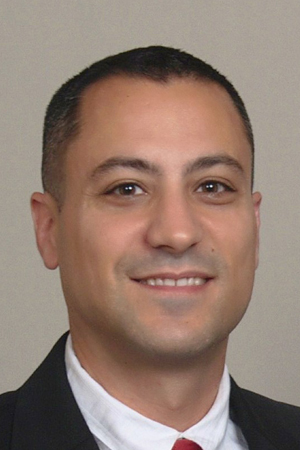 Dr. Geremie Palombaro is a board certified physician. He grew up in Vestal and is excited to have returned and to practice in his hometown. He attended Binghamton University, where he studied Biology and later received his medical degree from the Lake Erie College of Osteopathic Medicine. Dr. Palombaro completed an internship in Internal Medicine at Cleveland’s University Hospital. He then completed his Ophthalmology residency, during which he was named Chief resident, at the Lake Erie College of Osteopathic Medicine. After intensive micro-surgical training at LECOM, he was then accepted into a highly selective Oculoplastic and Facial Reconstruction fellowship in El Paso Texas. His fellowship allowed for a diversity of experience and training while working at El Paso Children’s Hospital and University Medical Center of El Paso, which is a renowned teaching and research hospital and the only level 1 trauma center in a 280-mile radius of El Paso. During his fellowship, Dr. Palombaro worked with eminent Facial Plastic surgeons, Otolaryngologists (ENT surgeons), Dermatologic (Mohs) surgeons, Oral and Maxillofacial surgeons (OMF), and Oculoplastic surgeons. Dr. Palombaro has written many medical articles, including research publications in The Association for Research in Vision and Ophthalmology (ARVO).Upon finishing his Oculoplastic surgery fellowship he joined a multispecialty practice in Pennsylvania. Through his dedication to his patients Dr. Palombaro has received many awards and accolades including Top Ophthalmologist Pennsylvania, and Top 10 Best Plastic Surgeons Pennsylvania.
Dr. Geremie Palombaro is a board certified physician. He grew up in Vestal and is excited to have returned and to practice in his hometown. He attended Binghamton University, where he studied Biology and later received his medical degree from the Lake Erie College of Osteopathic Medicine. Dr. Palombaro completed an internship in Internal Medicine at Cleveland’s University Hospital. He then completed his Ophthalmology residency, during which he was named Chief resident, at the Lake Erie College of Osteopathic Medicine. After intensive micro-surgical training at LECOM, he was then accepted into a highly selective Oculoplastic and Facial Reconstruction fellowship in El Paso Texas. His fellowship allowed for a diversity of experience and training while working at El Paso Children’s Hospital and University Medical Center of El Paso, which is a renowned teaching and research hospital and the only level 1 trauma center in a 280-mile radius of El Paso. During his fellowship, Dr. Palombaro worked with eminent Facial Plastic surgeons, Otolaryngologists (ENT surgeons), Dermatologic (Mohs) surgeons, Oral and Maxillofacial surgeons (OMF), and Oculoplastic surgeons. Dr. Palombaro has written many medical articles, including research publications in The Association for Research in Vision and Ophthalmology (ARVO).Upon finishing his Oculoplastic surgery fellowship he joined a multispecialty practice in Pennsylvania. Through his dedication to his patients Dr. Palombaro has received many awards and accolades including Top Ophthalmologist Pennsylvania, and Top 10 Best Plastic Surgeons Pennsylvania.
After his extensive and intense training and work experience Dr Palombaro has returned home to New York to join Sambursky Eye and Esthetics. He is excited to provide the highest quality Oculofacial Plastic and Ophthalmic surgery to his patients.
MICHAEL C. HERCEG, D.O.
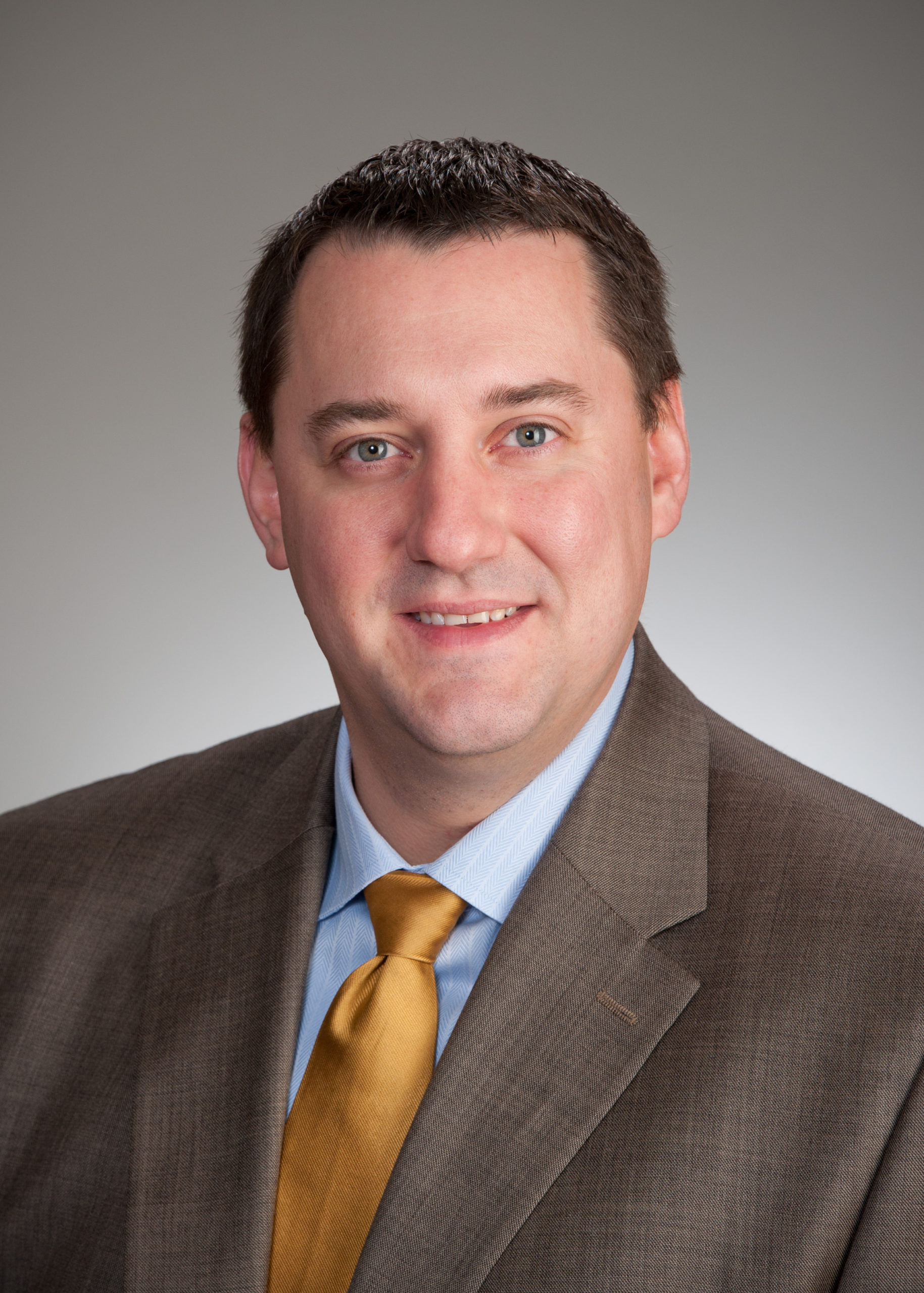 Dr. Herceg is certified by the American Board of Ophthalmology and Subspecialty Fellowship trained in Glaucoma. He is a graduate of The NY College of Osteopathic Medicine. He completed his ophthalmology residency at SUNY Buffalo where he was chief resident his senior year. Dr. Herceg also completed a Glaucoma Fellowship at University of Pittsburgh Medical Center. He is a Clinical Associate Professor of Ophthalmology at SUNY Upstate Medical School and instructs medical students in the State University of New York Clinical Campus program. Dr. Herceg has been in practice in the southern tier at Binghamton Eye Associates since 2008. He specializes in cataract surgery, glaucoma surgery and treatment, and comprehensive ophthalmology.
Dr. Herceg is certified by the American Board of Ophthalmology and Subspecialty Fellowship trained in Glaucoma. He is a graduate of The NY College of Osteopathic Medicine. He completed his ophthalmology residency at SUNY Buffalo where he was chief resident his senior year. Dr. Herceg also completed a Glaucoma Fellowship at University of Pittsburgh Medical Center. He is a Clinical Associate Professor of Ophthalmology at SUNY Upstate Medical School and instructs medical students in the State University of New York Clinical Campus program. Dr. Herceg has been in practice in the southern tier at Binghamton Eye Associates since 2008. He specializes in cataract surgery, glaucoma surgery and treatment, and comprehensive ophthalmology.Staff
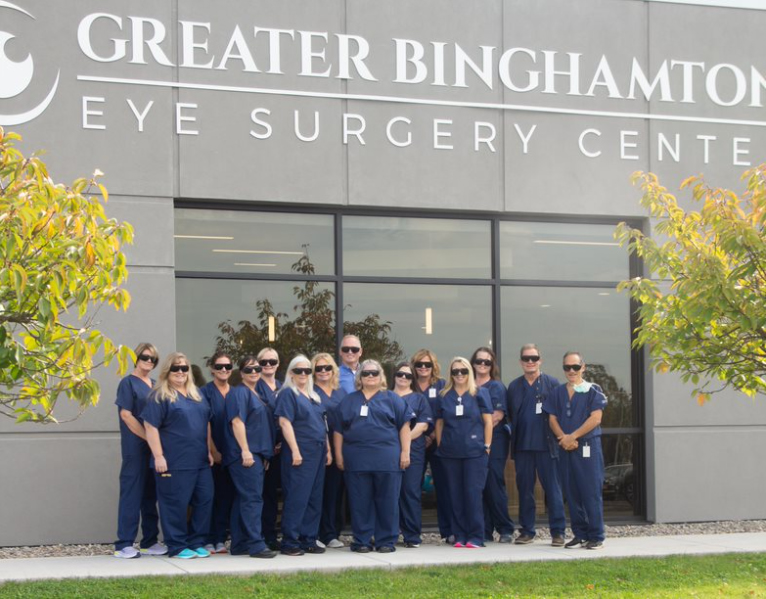
Our professional staff is a most valued asset of the Ambulatory Surgery Center.
We foster an atmosphere that encourages the pursuit of continuing education and professional development.
Our staff takes pride for being known by our patients for our warmth and compassion and we are instilled with the knowledge that medicine is an art as well as a science — and the well-being of our patients is at the heart of our focus.
Our surgery center features a top tier team of anesthesiologists:
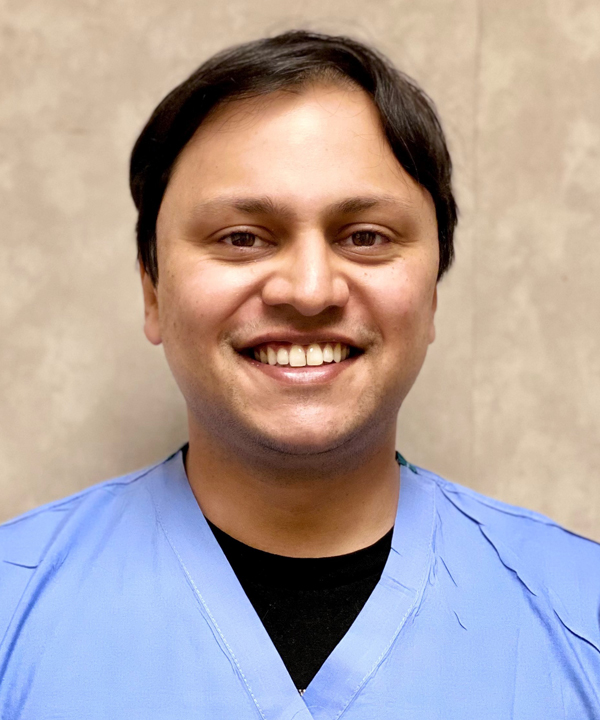
SIRAJ BHADSAVLE MD

FRANK KIRK MD
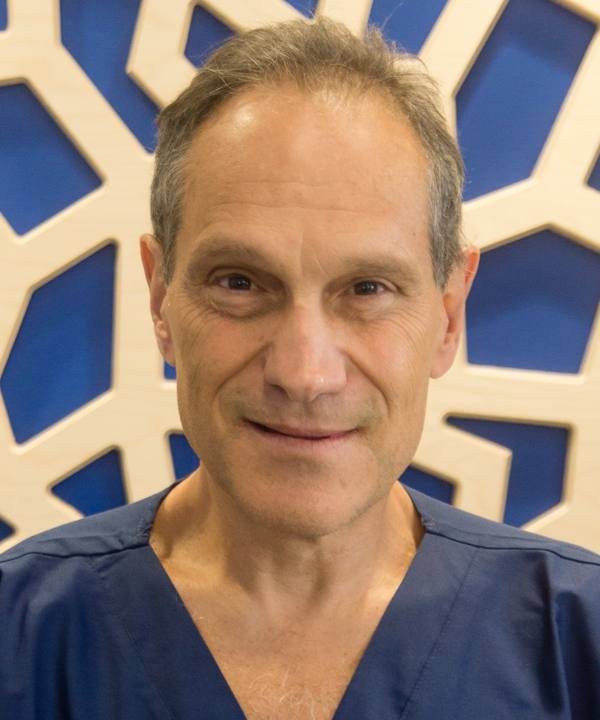
KENNETH MINTZ MD
Patient Resources Section
Before Your Surgery
Your surgeon will require that you see your primary physician for a complete medical exam. His office will give you all the necessary paperwork. It’s important that you make the appointment immediately.
Our preop calling staff will call you the day before your surgery. They can answer any questions you may have and give you specific instructions for surgery day.
Bring all your medications with you.
Bring your insurance card and picture ID with you.
Wear comfortable, loose-fitting clothes on surgery day.
Leave jewelry and other personal belongings at home.
Be certain to bring a companion to accompany you home and assist you after your surgery.
We’re happy to accommodate any special needs you may have. Just let us know on the day of our preop telephone call.
On Surgery Day
On the day of your surgery, you’ll be greeted by our receptionist and will begin a short admission process.
One of our registered nurses will then escort you and assist you into a surgical gown and prepare you for your surgical procedure.
You will be greeted by the anesthesiologist and surgeon and have an opportunity to ask any questions.
After Your Surgery
When your surgical procedure has ended, you will be taken back to our recovery area.
You will then be served a light snack and a postoperative recovery room nurse will explain your postoperative instructions.
The entire process, from admission to discharge is typically no longer than 3-4 hours. The next day one of our nurses will call you to check up on how you’re feeling.
Insurance
Insurances We Accept
We are in-network for most major insurance companies. Please contact your surgeon’s office if you have questions about your insurance.
Information About Your Bill
Thank you for choosing the Greater Binghamton Eye Surgery Center for your surgical needs. The following will provide you with some of our billing information.
CoPay – if your insurance has a co-pay, we will try to collect this in full at the time of check in for your surgical visit. We will make every attempt to contact you prior to your surgical visit to inform you of the co-pay amount that is due at the time of check in. If you have any questions on whether a co-pay is to be collected, contact our office at 607-821-0669 and we will provide you with this information.
Upon completion of your surgical service, we will bill your primary and secondary insurance carriers. It is your responsibility to provide us with accurate and current information either prior to or on the day of your visit.
We have in-house billing staff, who take care of filing claims with your insurance carrier as well as collecting any balances attributed to your responsibility by your insurance carrier. Please reference the telephone numbers listed on your patient statement if you have any questions about your bill. Payments can be made by calling our office at 607-821-0669, or sent in the mail to our address which is: 530 Columbia Drive, Johnson City, NY 13790.
You can expect to receive 3 separate bills following your surgical visit from:
The Greater Binghamton Eye Surgery Center, and this covers your surgical visit which includes the supplies, equipment, and staff time to care for you while you are at our surgical center.
Your surgeon’s office.
The anesthesia provider (Model Anesthesia), if you received anesthesia.
PATIENT BILL OF RIGHTS
As a Patient, You Have the Right to:
- To have access to the patient rights and responsibilities established by this center;
- Be treated with respect, consideration and dignity;
- The right to effective communication;
- The right to be respected for your cultural and personal values, beliefs, and preferences;
- To be provided appropriate, security and privacy;
- The right to pain management;
- The right to access, request amendment to, and obtain information on disclosures of his or her health information, in accordance with law and regulation;
- The right to receive care in a safe setting;
- The right to information in a manner tailored to the patient’s age, language, and ability to understand;
- The center provides interpreting and translation services;
- The center communicates with the patient who has vision, speech, hearing, or cognitive impairments in a manner that fits the patient’s need.
- To be free from all forms of abuse, harassment, or neglect;
- To be fully informed about a treatment or procedure, agree with their care, and the expected outcome before the procedure is performed;
- Have the right to be involved with all aspects of their care including refusing care and treatment an resolving problems with care decisions;
- Have the right to have access to spiritual care while at the center if desired
- The organization respects the patient’s right to receive care in a safe setting;
- Appropriate information regarding the absence of malpractice insurance coverage.
- If a patient is adjudged incompetent under applicable state health and safety laws by a court of proper jurisdiction, the rights of the patient are exercised by the person appointed under state law to act on the patient’s behalf;
- If a state court has not adjudged a patient incompetent, any legal representative designated by the patient, in accordance with the state law, may exercise the patients’ rights to the extent allowed by state law;
- To see posted written notice of the patient rights in a place or places within the ASC likely to be noticed by patients (or their representative, if applicable) waiting for treatment. The written poster will include name, address, and telephone number of a representative of the state agency to whom the patient can report complaints, as well as the web site for the Office of the Medicare Beneficiary Ombudsman
- Patient disclosures and records are treated confidentially, and patients are given the opportunity to approve or refuse their release, except when release is required by law.
- Patients are provided, to the degree known, complete information concerning their diagnosis, evaluation, treatment, and prognosis. When it is medically inadvisable to give such information to a patient, the information is provided to a person designated by the patient or a legally authorized person.
- Patients are informed of their right to change their provider if other qualified providers are available.
- Patients are given the opportunity to participate in decisions involving their healthcare, treatment, or services, except when such participation is contraindicated for medical reasons.
- The center involves the patient’s family in care, treatment, or services decisions to the extent permitted by the patient or surrogate decision-maker, in accordance with law and regulation.
- The center provides the patient, or surrogate decision-maker, with the information about the outcomes of care, treatment, or services that the patient needs to participate in current and future health care decisions.
- The center informs the patient, or surrogate decision-maker, about unanticipated outcomes of care, treatment.
- Marketing or advertising regarding the competence and capabilities of the organizations is not misleading to patients.
- Patients are informed about procedures for expressing suggestions, complaints, and grievances, including those required by state and federal regulations.
- The patient has the right to voice grievances regarding treatment or care that is (or fails to be) furnished.
- The patient has the right to exercise his or her rights without being subject to coercion, discrimination, reprisal, or interruption of care that could adversely affect the patient.
- Patient rights, conduct and responsibilities;
- Services available at the organization;
- Provisions for after hour emergency care;
- Fee for services;
- Payment policies;
- Patient’s right to refuse participation in experimental research;
- Advance directives, as required by state and/or federal law and regulations;
- The credentials of health care professionals;
Patient Responsibilities
Prior to receiving care, patients are informed of their responsibilities. These responsibilities require the patient to:
Provide complete and accurate information to the best of his/her ability about his/her health, any medications, including over the counter products and dietary supplements and any allergies or sensitivities;
Follow the treatment plan prescribed by his/her provider;
Provide a responsible adult to transport him/her home from the facility and remain with him/her for twenty-four (24) hours, if required by his/her provider;
Inform his/her provider about any living will, medical power of attorney, or other directive that could affect his/her care;
Accept personal financial responsibility for any charges not covered by his/her insurance;
Be respectful of all the health care providers and staff, as well as other patients.
Advance Directive: Statement of Limitation
This facility will temporarily rescind the patients DNR; based on conscience (the scheduled procedure is an elective procedure), regardless of the contents of any DNR or instructions from a health care surrogate or attorney. If an adverse event occurs at this facility, we will initiate resuscitative or other stabilizing measures and transfer patient to an acute care hospital for further evaluation. The receiving hospital will implement further treatment or withdrawal of treatment measures already begun in accordance with patient wishes, advance directive or health care power of attorney.
Disclosure of Ownership
To receive written information about their physician’s possible ownership in the Surgery Center. Patients are informed about physician ownership prior to their procedure.
Grievance Policy
The Center strives to provide high quality of care and achieve patient satisfaction. Patient grievances/complaints provide a means to measure achievement of this goal and to identify a need for performance improvement.
Grievance/Complaint: Grievances are defined as care that the ASC provided or allegedly failed to provide.
Neglect – Failure to provide goods and services necessary to avoid physical harm, mental anguish, or mental illness (42 CFR 488.301).
Abuse – The willful infliction of injury, unreasonable confinement, intimidation, or punishment with resulting physical harm, pain or mental anguish (42 CFR 488.301).
All complaints received by the Center personnel shall be forwarded to the clinical director or his/her designee immediately, at least the same day. The clinical director will respond to the grievance within 72 hours of receiving it. For a full copy of the grievance procedure, please ask any Center personnel.
Advance Notice Rights
All patients will be advised, in advance of the procedure, the center’s policies on patient rights, patient responsibilities, patient grievance, NYS surprise bill law, advance directives, and disclosure of ownership. The patient has the right to receive this information in a language and manner that the patient or the patient’s representative understands. The center gives brochures to each patient being admitted with the center’s written policies regarding this information. The nurse making the preoperative call informs the patient verbally of this information.
To Report a Concern:
NEW YORK Board of Physicians
Information: www.op.nysed.gov/opd/
Email: conduct@nysed.gov
Phone: 800-442-8106
Fax: 212-951-6420
Write: Office of Professional Discipline, 1411 Broadway, Tenth Floor, New York, NY 10018
NYS Department of Health
NEW YORK Department of Health
Centralized Hospital Intake Program (CHIPS)
1/800/804/5447
State Medical Board of NEW YORK
Office of Professional Medical Conduct (OPMC)
Riverview Center
150 Broadway Ave, Suite 355, Albany, NY 12204
The TJC (The Joint Commission)
Mailing address:
Office of Quality Monitoring
The Joint Commission
One Renaissance Boulevard
Oakbrook Terrace, Illinois 60181
Fax: 630-792-5636
E-mail: complaint@jointcommission.org
Online: http://www.jointcommission.org/report_a_complaint.aspx
Office of the Medicare Beneficiary Ombudsman
Online: http://www.medicare.gov/claims-and-appeals/medicare-rights/get-help/ombudsman.html
Visit the web site listed above or call 1-800-MEDICARE (1-800-633-4227) for more information, to ask questions, and to submit complaints about Medicare to the Office of the Medicare Ombudsman. TTY users should call 1-877-486-2048.
